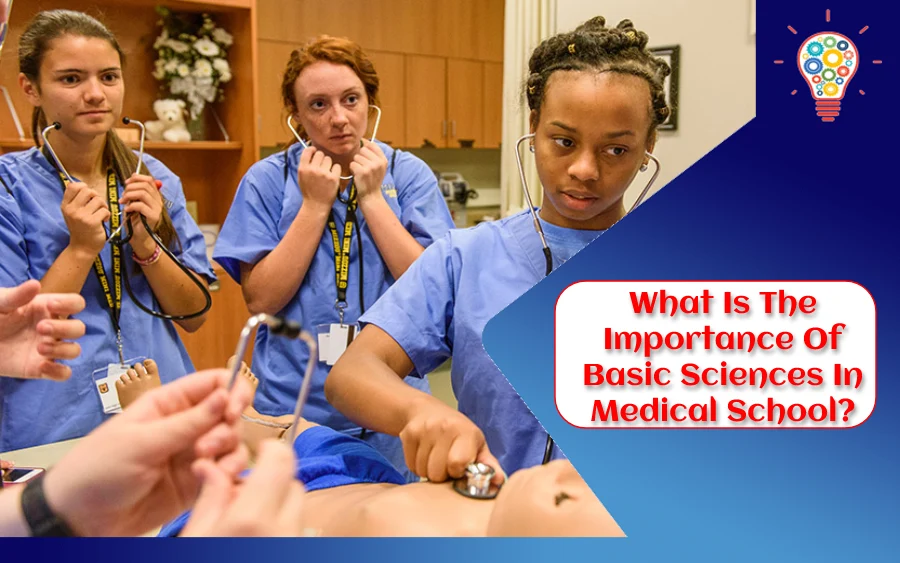The pathway to becoming a doctor includes the fierce competition to get into medical school and often takes a substantial financial investment as well as dedicating many years to studying and training. A Doctor of Medicine (MD) program, is the most sought-after degree that allows prospective individuals to pursue a clinical career as a doctor and establish a clinical practice in allopathic medicine. If your career aspiration is to become a doctor, you must understand the importance of basic science courses in medical school.
Basic science is an integral component of most medical school curricula. It provides the foundation upon which clinical medicine is built, making basic science the cornerstone of medical education. A doctor must be equipped with the skills and tools to understand the ongoing advancements in the medical field and apply these skills in patient care.
Most medical schools follow a similar curriculum for four consecutive years, divided into 10 semesters of coursework. The first five semesters of medical school comprise the basic sciences program taught by expert professors in state-of-the-art facilities in the gross anatomy labs. Basic sciences underpin medical students’ knowledge and understanding of the human body, diseases, and their associated treatment plans or therapies. Without a background in basic sciences, doctors would face great difficulty interpreting various symptoms in patients.
The medical school experience begins with the White Coat Ceremony, a celebration to mark the start of your journey to becoming a doctor. The first year of medical school introduces students to the basics of medical theories. Basic science courses involve the study of important topics throughout the five semesters. Modules covered under a well-designed basic science course are:
- Cell Biology and Histology
- Developmental and Gross Anatomy
- Biochemistry and Molecular Biology
- Biostatistics and Epidemiology
- Physiology
- Genetics
- Metabolism and Nutrition
- Infection/Defense/Response
- Microbiology and Immunology
- Neuroscience
- Behavioral Science and Ethics
- Pharmacology
- Pathology
- Clinical Therapeutics
Preparation for USMLE Step 1
Mastering the basic sciences component makes students eligible to apply for the United States Medical Licensing Examination (USMLE) Step 1. The foundation of clinical medicine during the fifth semester provides full-scale preparation and a simulated exam experience. It is considered one of the most demanding examinations for earning the license to work as a practicing doctor in the U.S. and Canada.
Develops clinical skills
Basic science courses also mark the beginning of learning the clinical skills that are integral for future doctors in patient interaction. It offers a consolidated framework for clinical medicine and the skills needed to perform diagnosis and treatments of patients. The clinical skills developed during the basic science program prepare students extensively to transition from the classroom to a real clinical setting during the clinical rotations.
Basic sciences lend students an invaluable and unmatched memory tool that automatically guides them to perform excellent treatment. Without basic sciences, a doctor’s training remains inadequate for standard medical care. Now that you understand the importance of basic science courses in medical school and education, find the medical school suited to you and start your journey to becoming a doctor today.
Visit the rest of the site Updated Ideas for more useful and informative articles.
Thank you!

